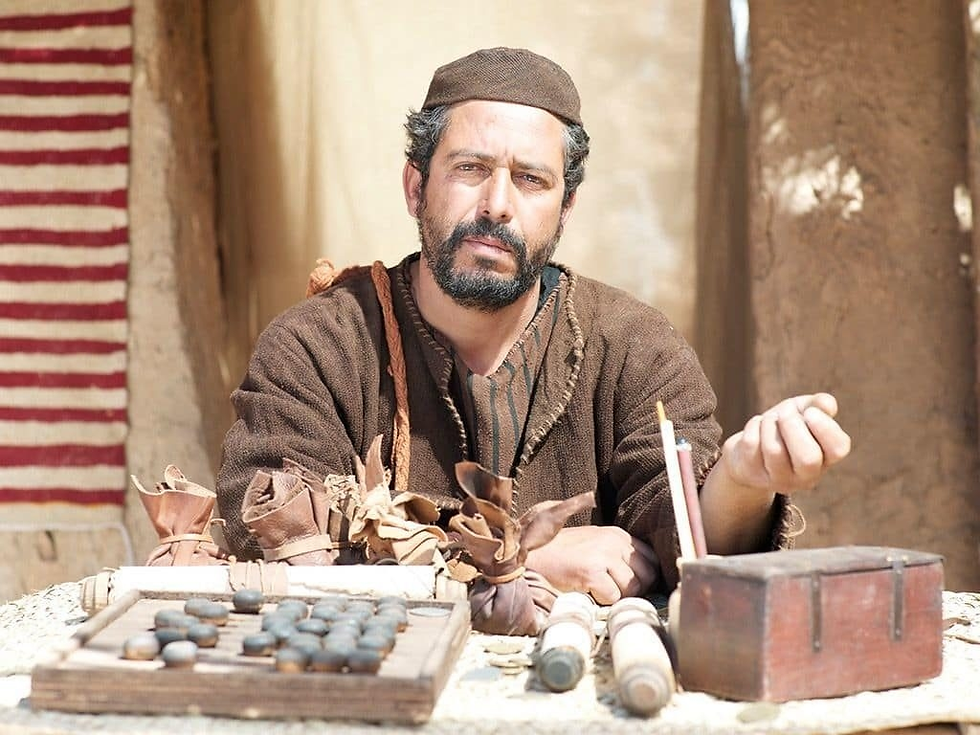Matthew the tax collector on tariffs
- Ross Moughtin

- Apr 4, 2025
- 4 min read
Updated: Apr 18, 2025

Matthew, the disciple of Jesus, knew all about tariffs—he collected them. But it didn’t make him rich; it just cost him friends.
As a tax collector working for the occupying Roman power, Matthew collected custom duties at his booth in Capernaum, a strategic location on the Via Maris, a major Roman trade route connecting Egypt and Damascus.
What you may not realize is that Capernaum was a border town, where traders crossed from Galilee (ruled by Herod Antipas) into Gaulanitis (ruled by Philip the Tetrarch). And where there was a border, the Romans saw financial opportunity.
Custom taxes were a profitable revenue source for the empire, but they also drove up prices and worsened economic hardship, particularly for the landless poor. These taxes made daily essentials more expensive and deepened the divide between the wealthy elite and the struggling lower classes.
The Romans didn’t collect these taxes directly—they outsourced the job to locals who took a cut for themselves. Whether the tax was paid by the merchants as an excise tax or passed on to consumers as a tariff, one thing was certain: it hurt the people at the bottom the most.
We aren’t told the back story of Matthew. However, Mark and Luke give us a clue by referring to him as "Levi" when describing his call to discipleship:
“As Jesus walked along, he saw Levi son of Alphaeus sitting at the tax collector’s booth. ‘Follow me,’ Jesus told him, and Levi got up and followed him.” (Mark 2:14)
The name Levi was deeply significant in Jewish culture—it was the name of one of Jacob’s twelve sons and the tribe traditionally responsible for priestly duties in Israel. Yet, for reasons we can only guess at, Levi found himself collecting taxes instead of serving in the temple.
Perhaps it was financial necessity that led him to this role. Perhaps he had lost faith in the religious establishment. Either way, his decision to work for Rome made him a traitor in the eyes of his own people. He was an outcast, despised and shunned—just like his tree.climbing counterpart, Zacchaeus.
His job likely put him at odds with Peter, Andrew, James, and John, who, as fishermen, would have been taxed on their daily catch. Imagine their shock when Matthew later joined them as a disciple!
Choosing self-interest at the expense of others rarely wins admiration, a lesson many public figures—including politicians—have learned the hard way. Even those in power, like President Trump, crave affirmation. This morning’s Times wryly notes that in the Rose Garden briefing on Wednesday, he surrounded himself with “hi-viz-clad American workers straight from central casting.”
But the need for support and community is universal. Matthew felt it, too. That’s why, as soon as Jesus called him, he didn’t celebrate alone—he hosted a banquet with other tax collectors and so-called "sinners." He had wealth, but what he truly craved was belonging.
Matthew must have been aware of Jesus before his dramatic conversion. It seems that Jesus chose to make Capernaum, a major communications hub, his base for ministry in Galilee. “Leaving Nazareth, he went and lived in Capernaum, which was by the lake in the area of Zebulun and Naphtali.” (Matthew 4:13)
Matthew would have seen Jesus often, perhaps watching as crowds flocked to hear him. Perhaps, even as he collected tolls, he felt a pang of longing for something more. So when Jesus stopped, looked him in the eye, and said, “Follow me”, he didn’t hesitate.
"He got up and followed him." Just like that.
Matthew’s experience as a tax collector shaped his Gospel. He knew firsthand the lure of money—and its emptiness. He records the story of the rich young man who wanted to follow Jesus but walked away “because he had great wealth” (Matthew 19:22). Maybe Matthew saw his old self in that man—the one who almost missed out on true riches.
He is also the only Gospel writer to include the strange story of Jesus and the temple tax (Matthew 17:24-27). When tax collectors ask Peter if Jesus pays the two-drachma tax, Peter says yes. But Jesus later explains: As God’s Son, Jesus should not have been obligated to pay.
Yet, to avoid unnecessary conflict, he provides the tax in a miraculous way telling Peter to catch a fish that holds a four-drachma coin in its mouth. Sometimes, Jesus teaches, it is wise to comply with human regulations for the sake of peace.
The global economy is no stranger to the politics of taxation. Some nations retaliate against unfair tariffs, while others bear the cost quietly. But one thing is clear—protectionist policies often hurt the poor the most. It’s one thing to tax Swiss imports at 32%, but Lesotho at 50%? That’s devastating.
If Matthew were here today, he would likely argue that true greatness isn’t about amassing wealth or imposing economic power, but about serving others—especially the vulnerable—even when it comes at personal cost.
Perhaps that’s why he left everything behind when Jesus called. Because he had finally found something worth more than money.






Comments